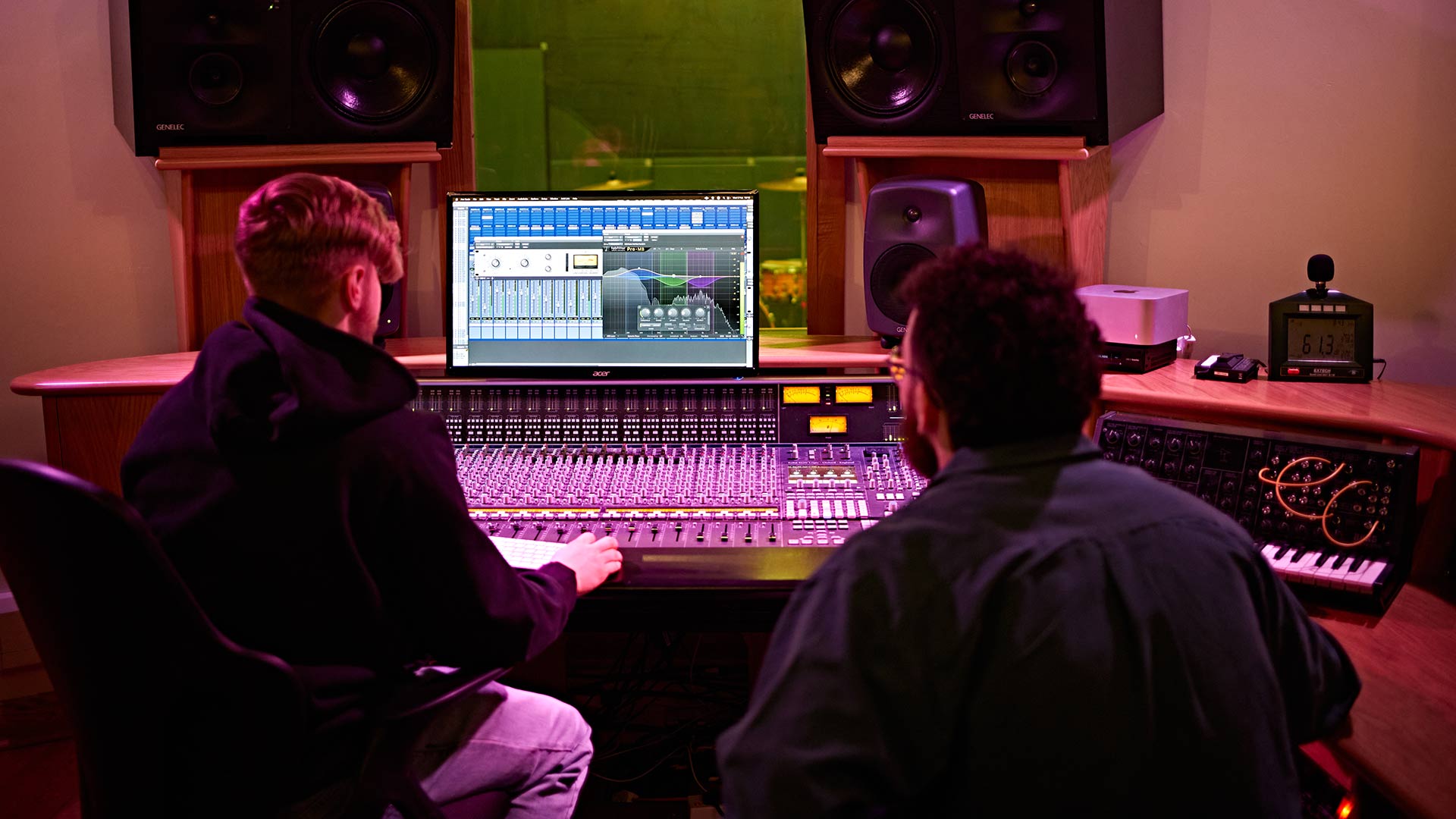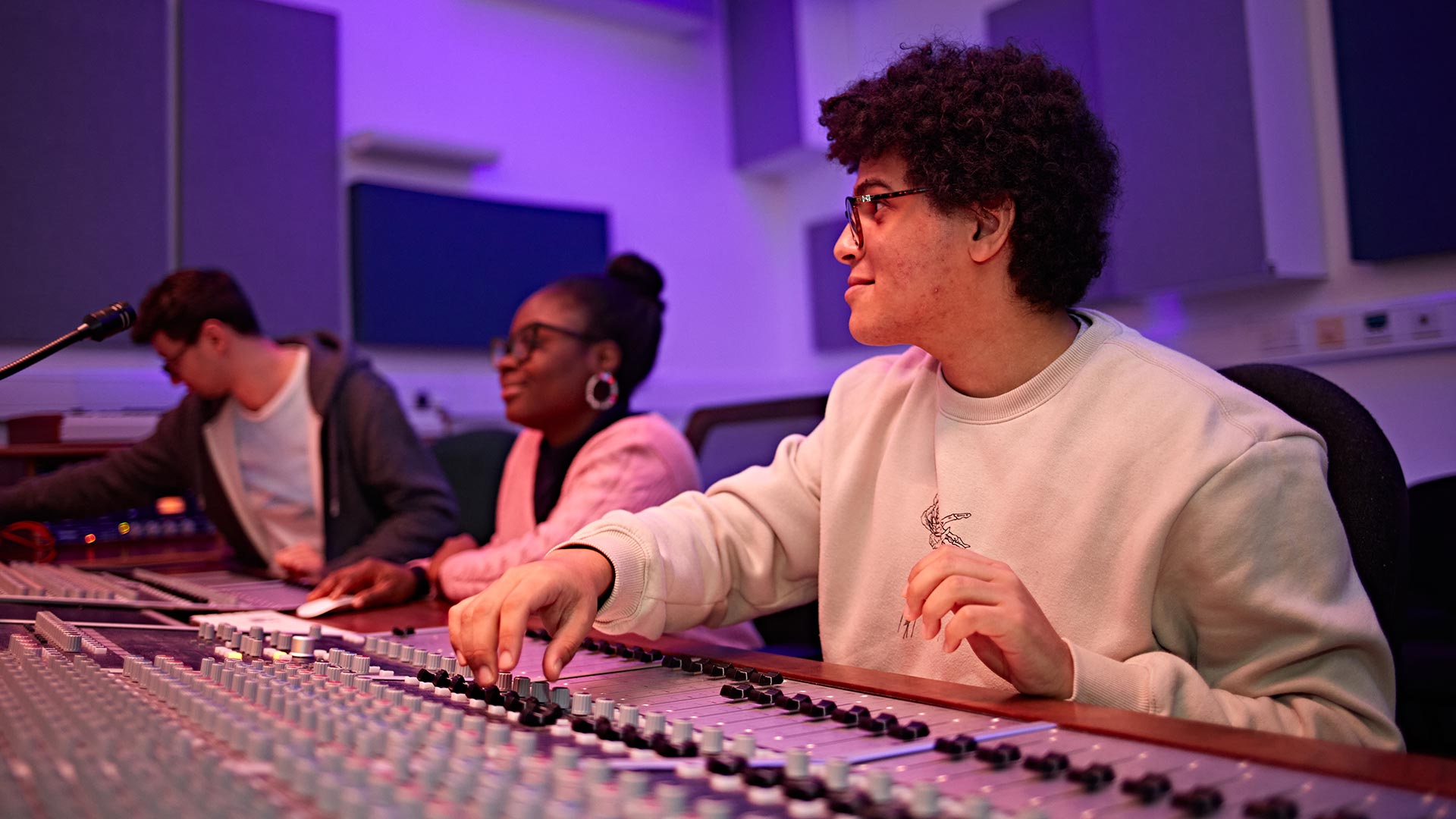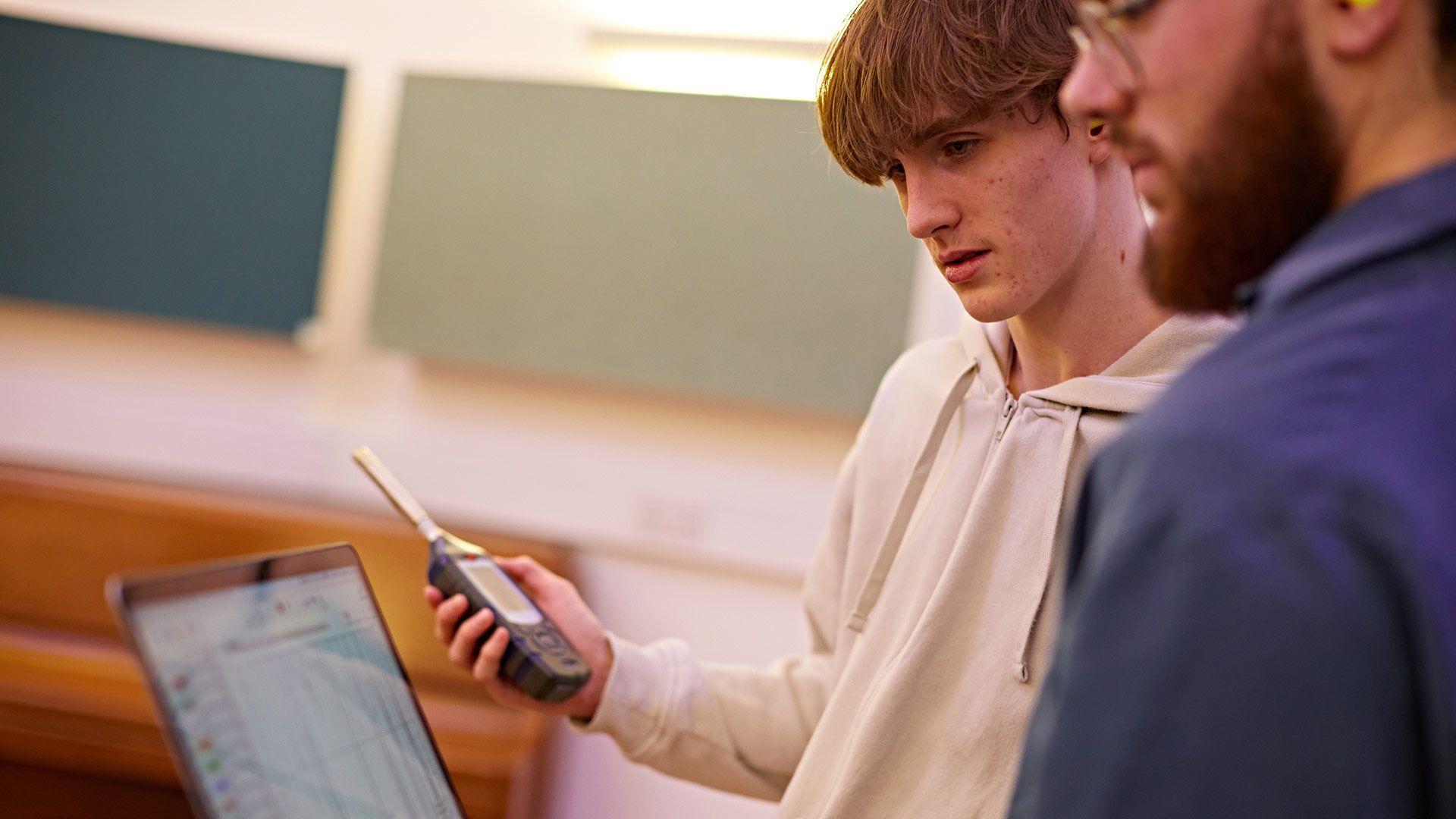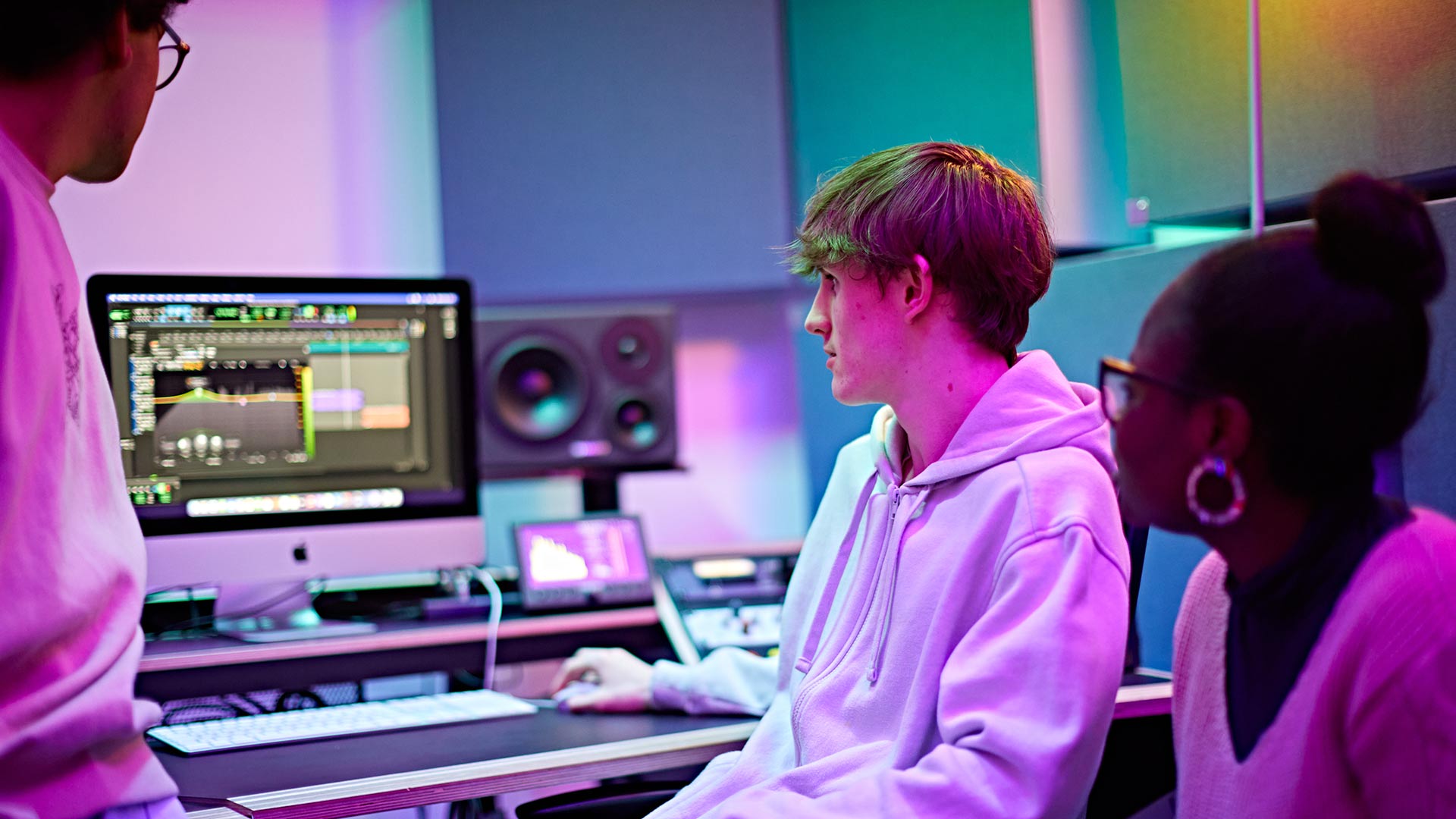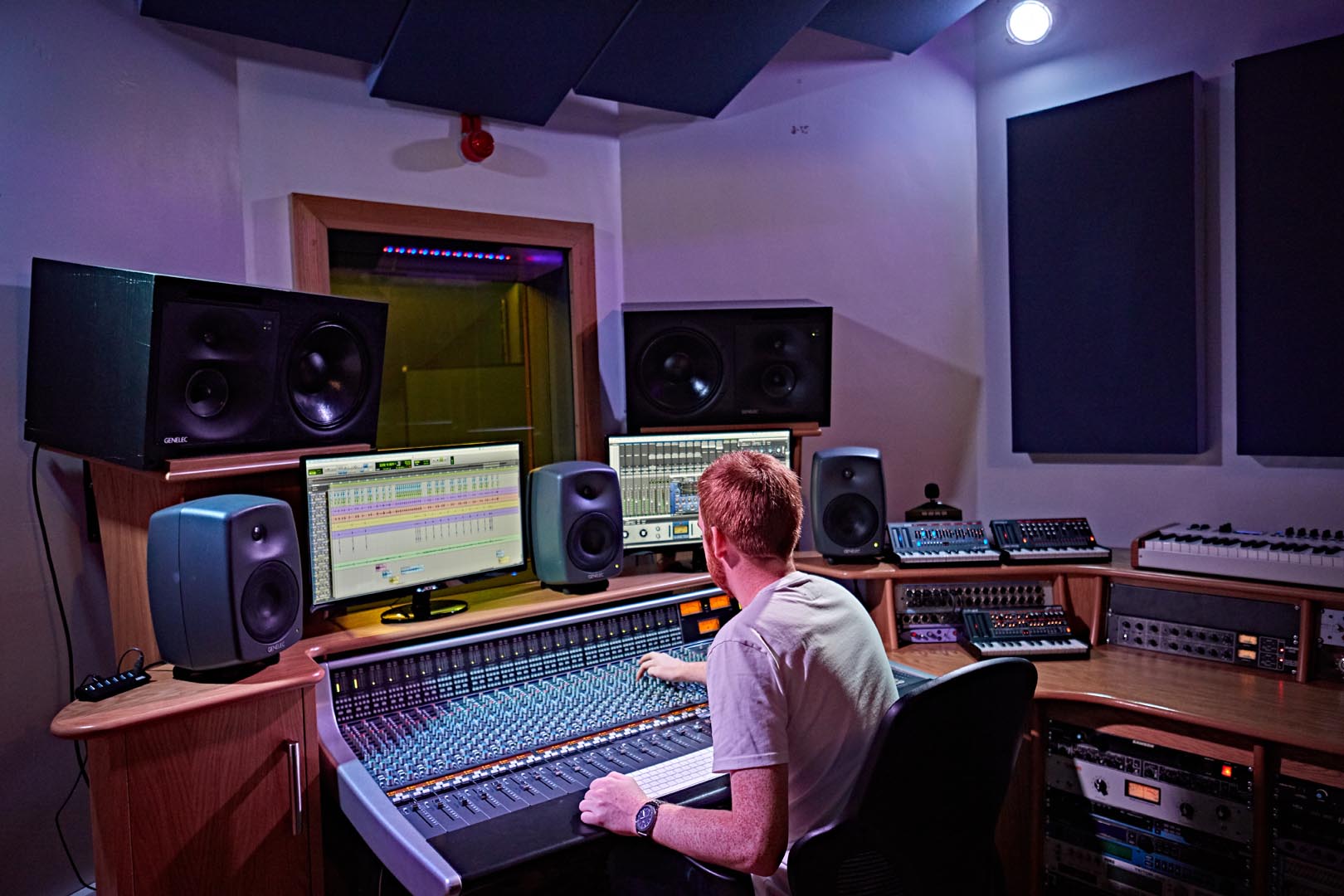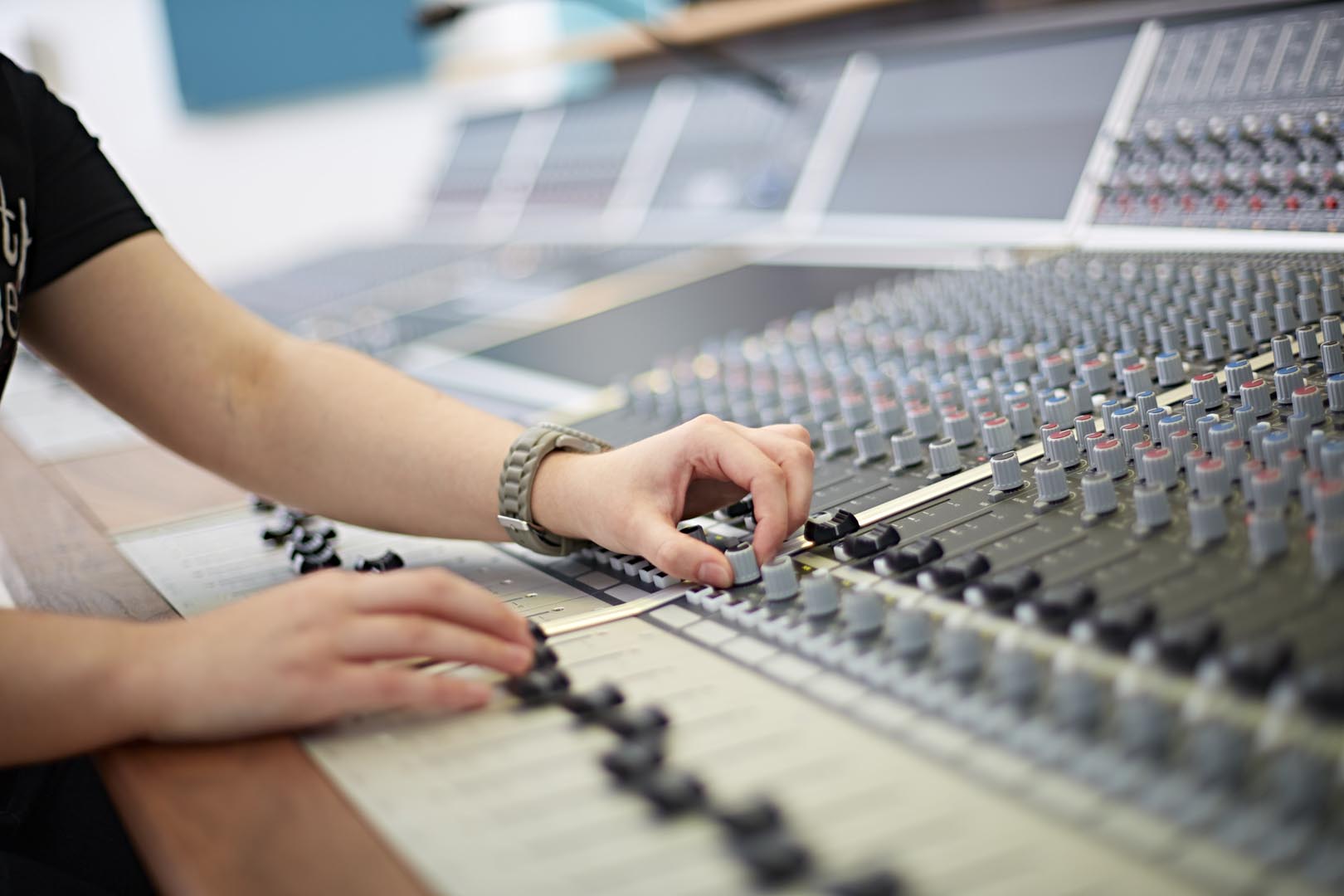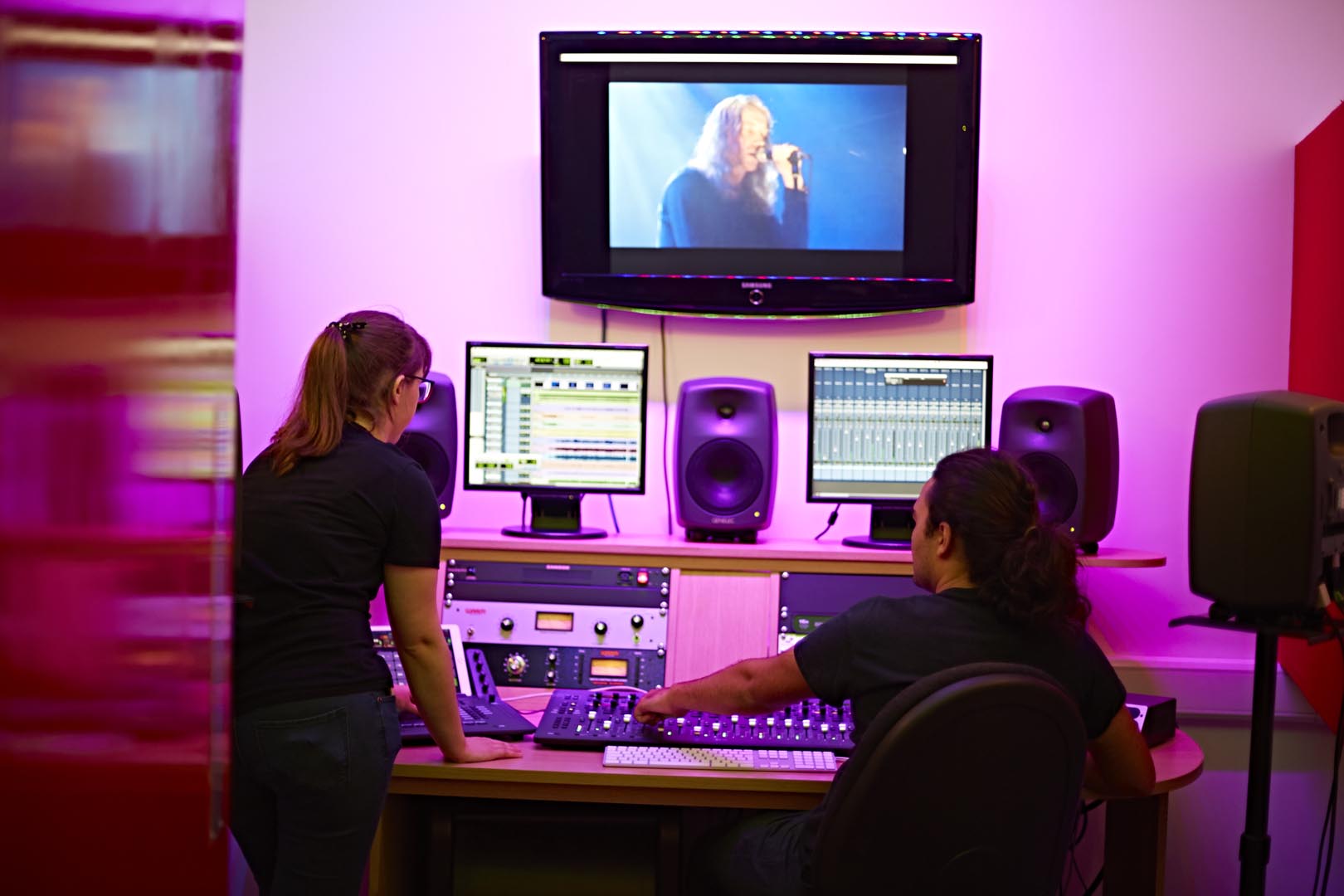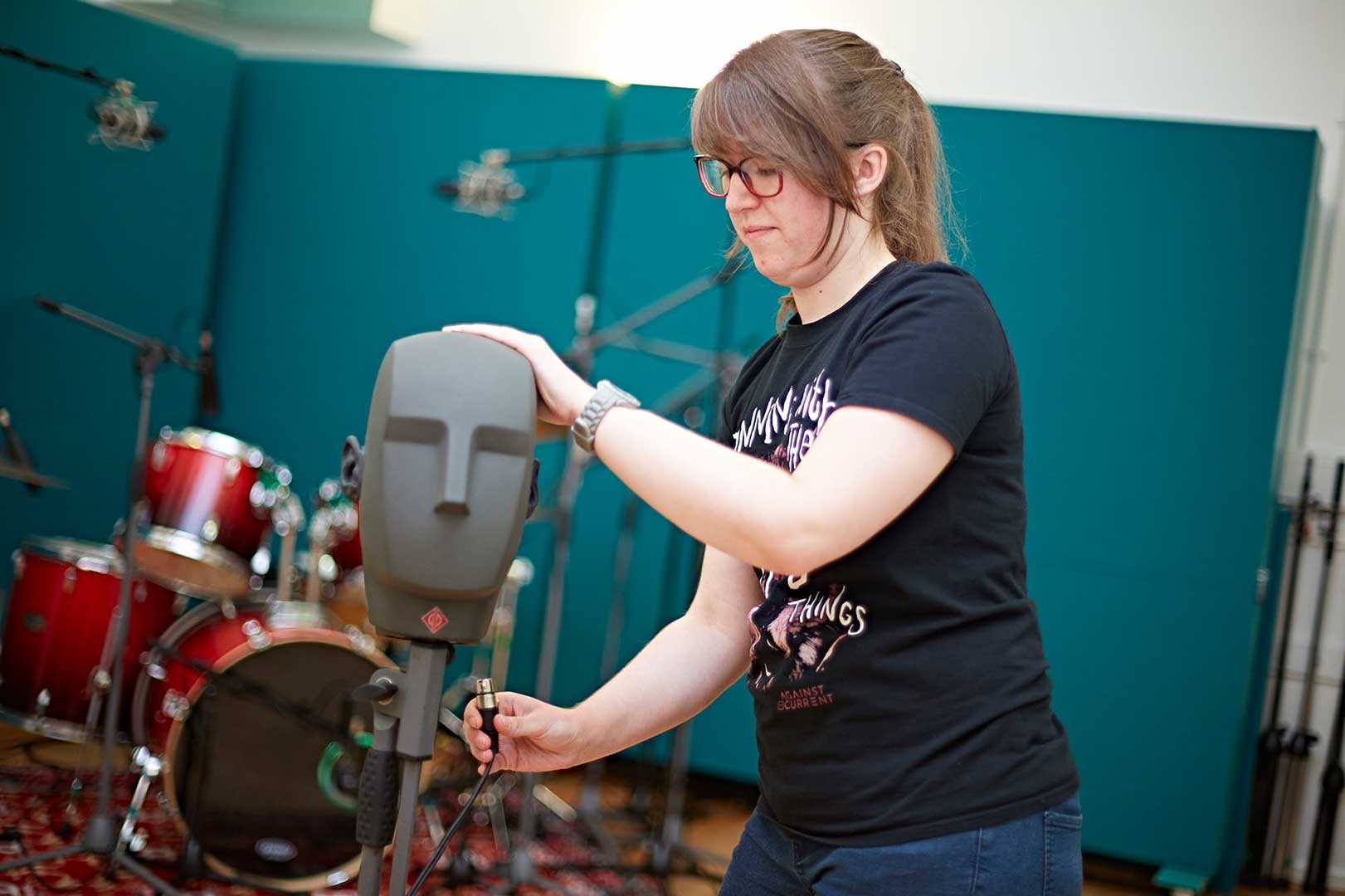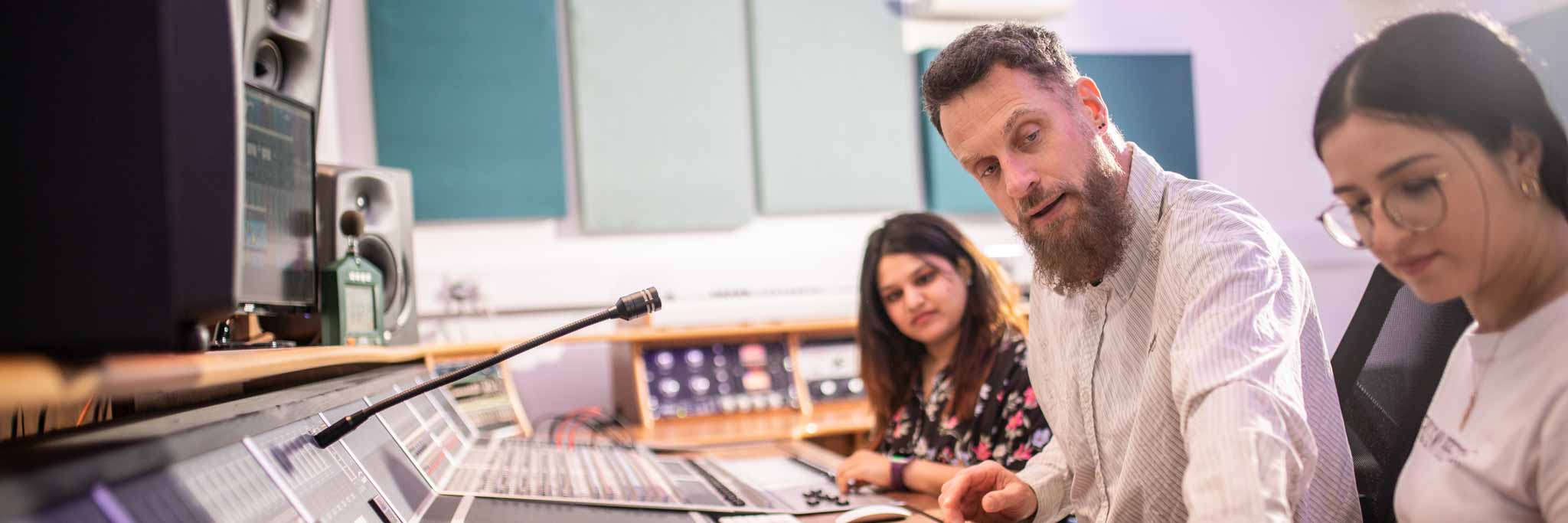
Music Technology
Jump straight in: |
|---|
Why study Music Technology?
The music and audio-related industries are constantly evolving, and they require more than just musicians to operate. Producers, engineers and technicians with a solid foundation in the technical and creative aspects of music and sound engineering, as well as practical skill and experience, are all vital in the ability to capture, create and distribute high-quality audio around the globe.
If you’re passionate about music and technology, and looking for a creative yet practical course, you could consider one of our degrees. They are designed to provide you with a comprehensive understanding of the technical and creative aspects of music and sound engineering, as well as the knowledge and skills needed to work in the audio industry. Having a broad range of skills will maximise your potential in securing your dream job.
You’ll be taught by accessible and knowledgeable tutors who understand the industry and will support you in gaining the skills that are in demand. Many of our courses are also accredited by industry bodies, giving an indicator of quality to you and employers.
What can you do with a degree in Music Technology?
With a degree in Music Technology from the University of Huddersfield, you will be able to explore careers in audio engineering, sound design and music production. Opportunities exist in recording studios, live sound for concerts and events, and multimedia production for film, television and video games. Additionally, the technical and creative skills you acquire will be beneficial in roles such as acoustic consultancy, audio software development and teaching. You may also find opportunities in broadcast engineering, podcast production and sound for virtual reality experiences, where your expertise in sound manipulation and technology is crucial.
Video Library
Explore our facilities and find out more from our current students and graduates
Blogs
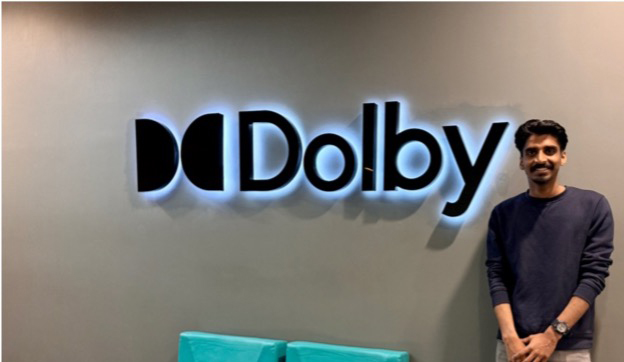
What I Learned During My Dolby Placement Year
Hi, I’m Nirmal CD, an international student doing my final year in Sound Engineering and Music Production at the University of Huddersfield.

A Day in My Life as an Athlete at University
Hi everyone! I am Aral Jack Yildirim, but everyone always calls me AJ. I study Sound Engineering and Music Production at Huddersfield, and I’m also an endurance athlete, specifically a distance runner.
Inspiring teaching
During your studies, you will be supported by tutors, many of whom are experienced industry professionals.
Our music and music technology departments are active in research, helping to ensure you'll learn from academics at the forefront of their specialist area. Many of the academic staff are members of the Audio Engineering Society (AES) and are researching into areas such as perceptual audio, automated mixing techniques, music production, new interfaces for music and other related disciplines.
Gain real industry experience
Our teaching focuses on the latest technologies, and we aim to put you at the forefront of opportunities for your future career. Previous graduates have gone to work for companies like Adlib Audio, working on live sound with major touring artists, or technical positions at renowned companies like Abbey Road Studios and Angel Studios, and been nominated for Grammy awards for their work on productions by pop stars such as Adele.
We place a great deal of importance on creating employable graduates, and one way we do this is through industry experience. In your third year of a Bachelor's degree, you'll have the opportunity to undertake a placement year in industry. A placement year is an excellent way to boost your CV and your confidence.
Related Research
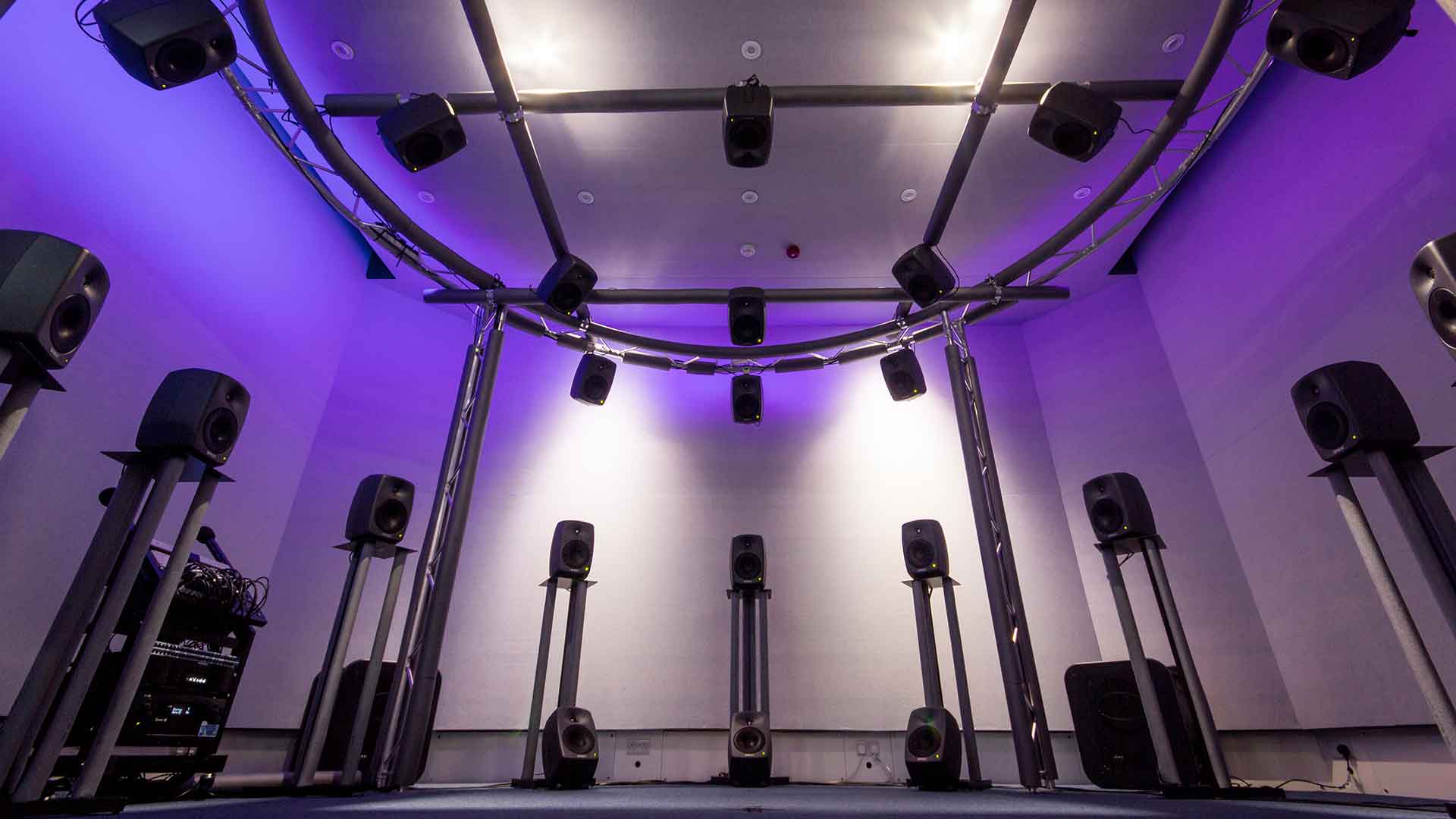
Centre for Audio and Psychoacoustic Engineering
We're a diverse team at the University of Huddersfield, UK, specializing in psychoacoustics research, digital audio signal processing, and music production.
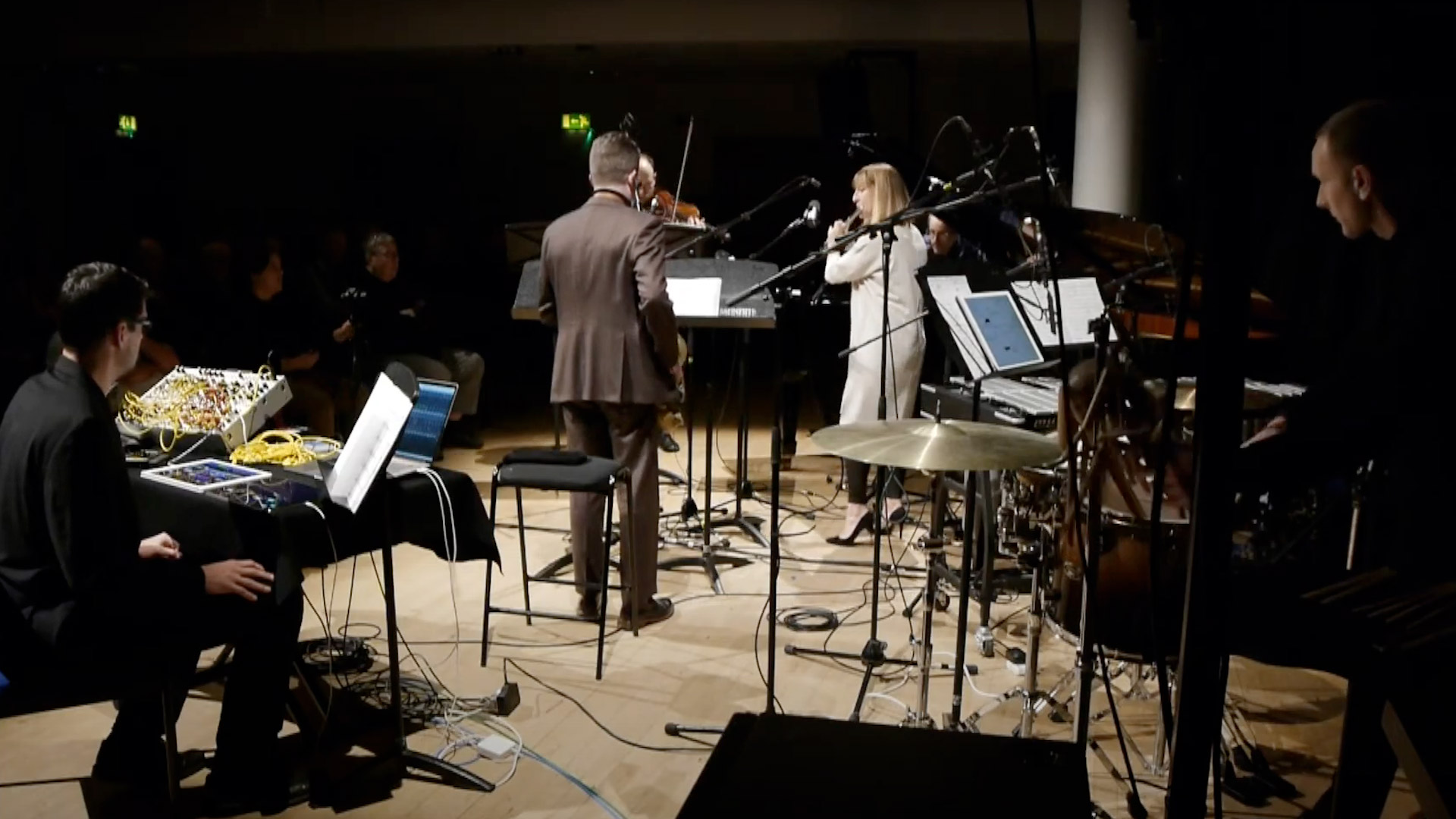
CeReNeM: Centre for Research in New Music
We are a community of world-leading artists and scholars bringing innovative and interdisciplinary perspectives to research in composition, performance, sonic arts and multimedia, music technology, improvisation, analysis and new music studies.
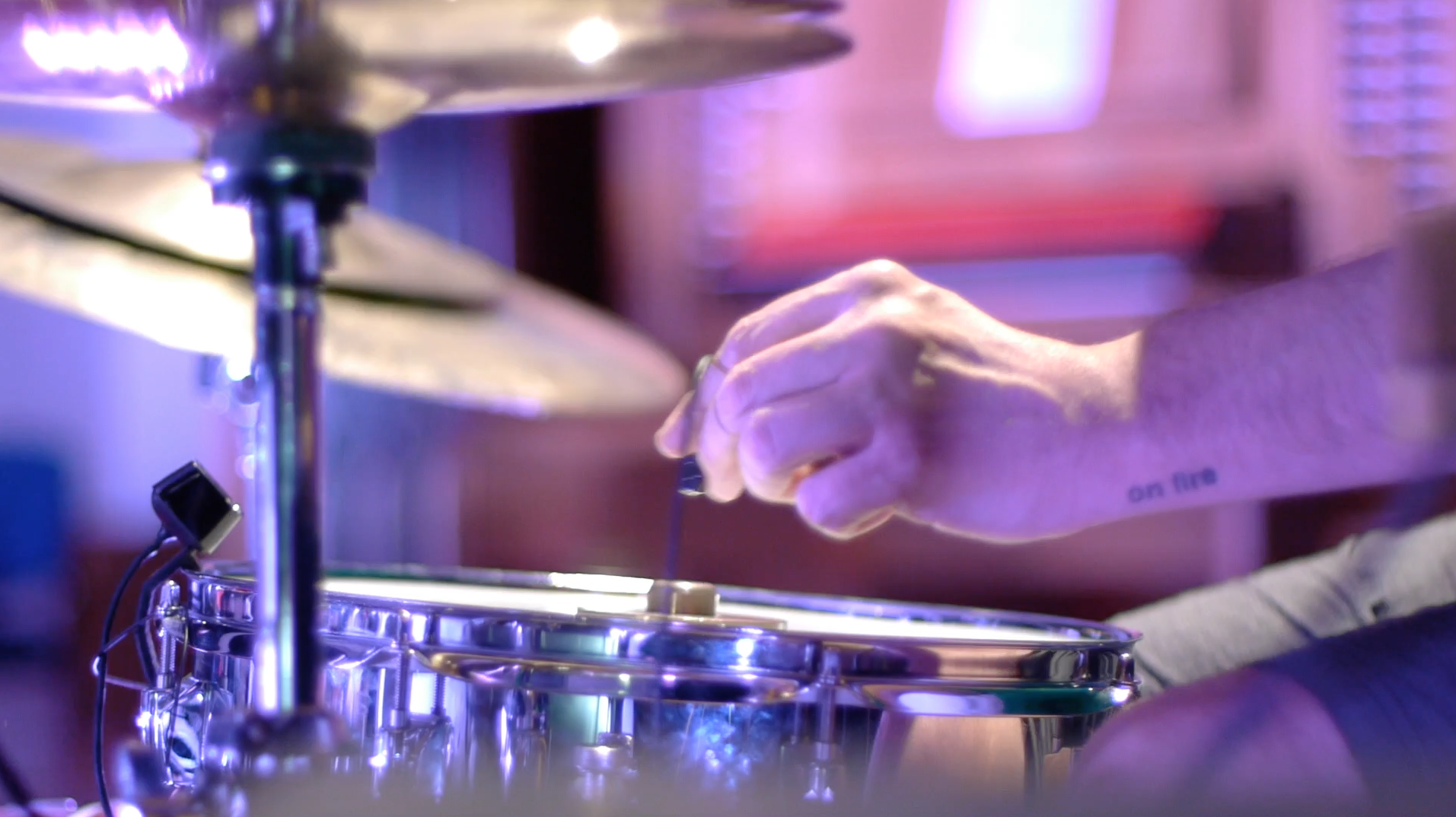
Centre for the Research in Music and its Technolog
Our centre brings together researchers investigating musics and musical cultures using a variety of historical, critical analytical and technological methodologies.
Placement year - Meet Lucy
“I undertook a placement as part of my degree. I spent a year in the Product Test department at Calrec Audio in Hebden Bridge. They make mixing desks for broadcast (most live TV goes through a Calrec), and my job was to test new products before their release. My placement has become a highlight of my CV, and I never would have had the opportunity to work here for a year without the Placement Unit's contacts and support.”
“After graduation I worked as a freelance work as a sound engineer for live music venues. In May this year I joined the BBC as a Studio Director for Radio 5 Live and the World Service.”
How to apply
Here is what you need to know about applying to the University of Huddersfield.
Open Days and Campus Tours
Attend one of our Open Days or Campus Tours to get a feel of The University and see if it is right for you.
Chat online with our students
Find out what life is really like at Huddersfield by chatting to one of our existing students.
Apply to Huddersfield
Find out about making an application to the University of Huddersfield.
